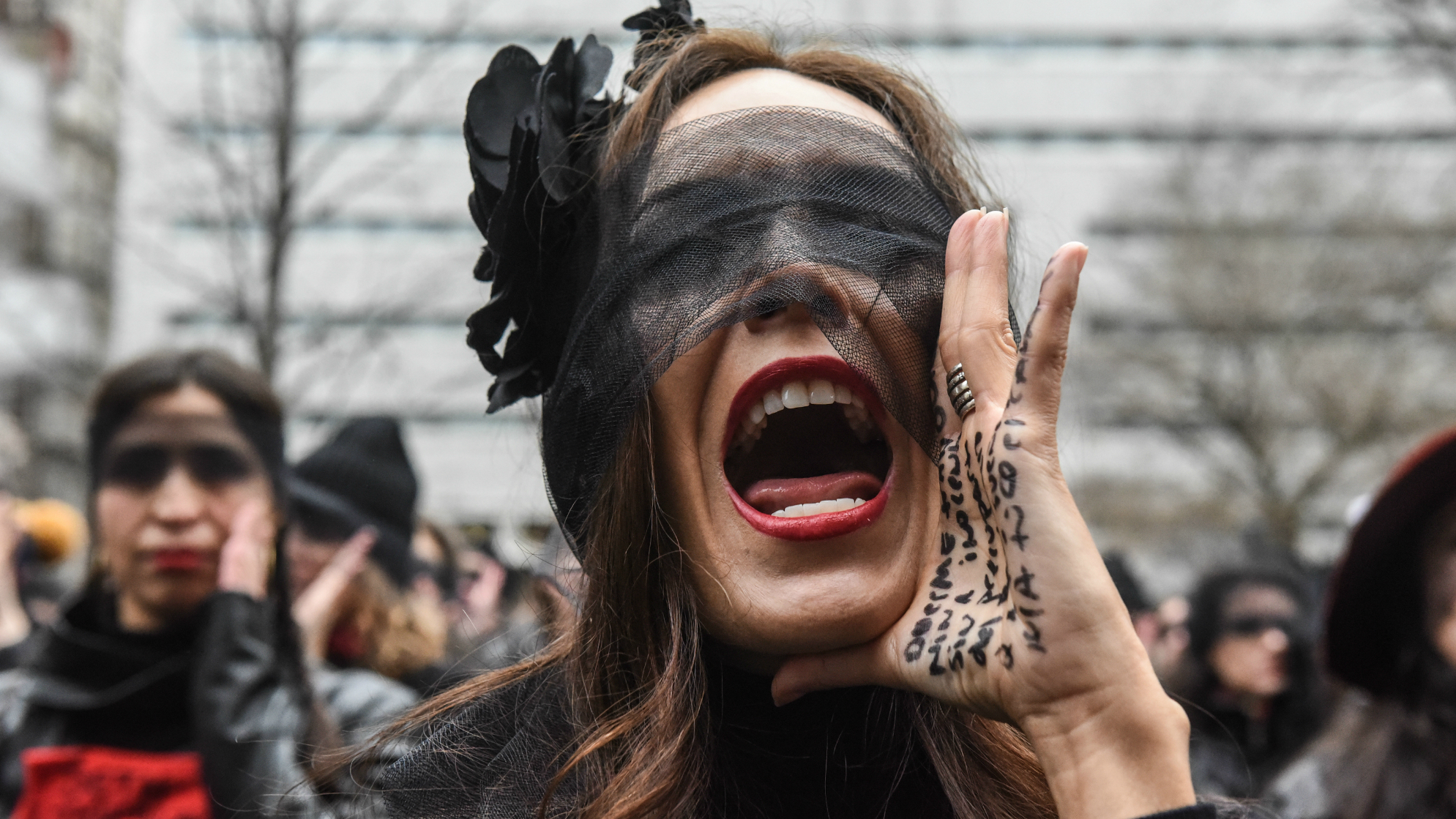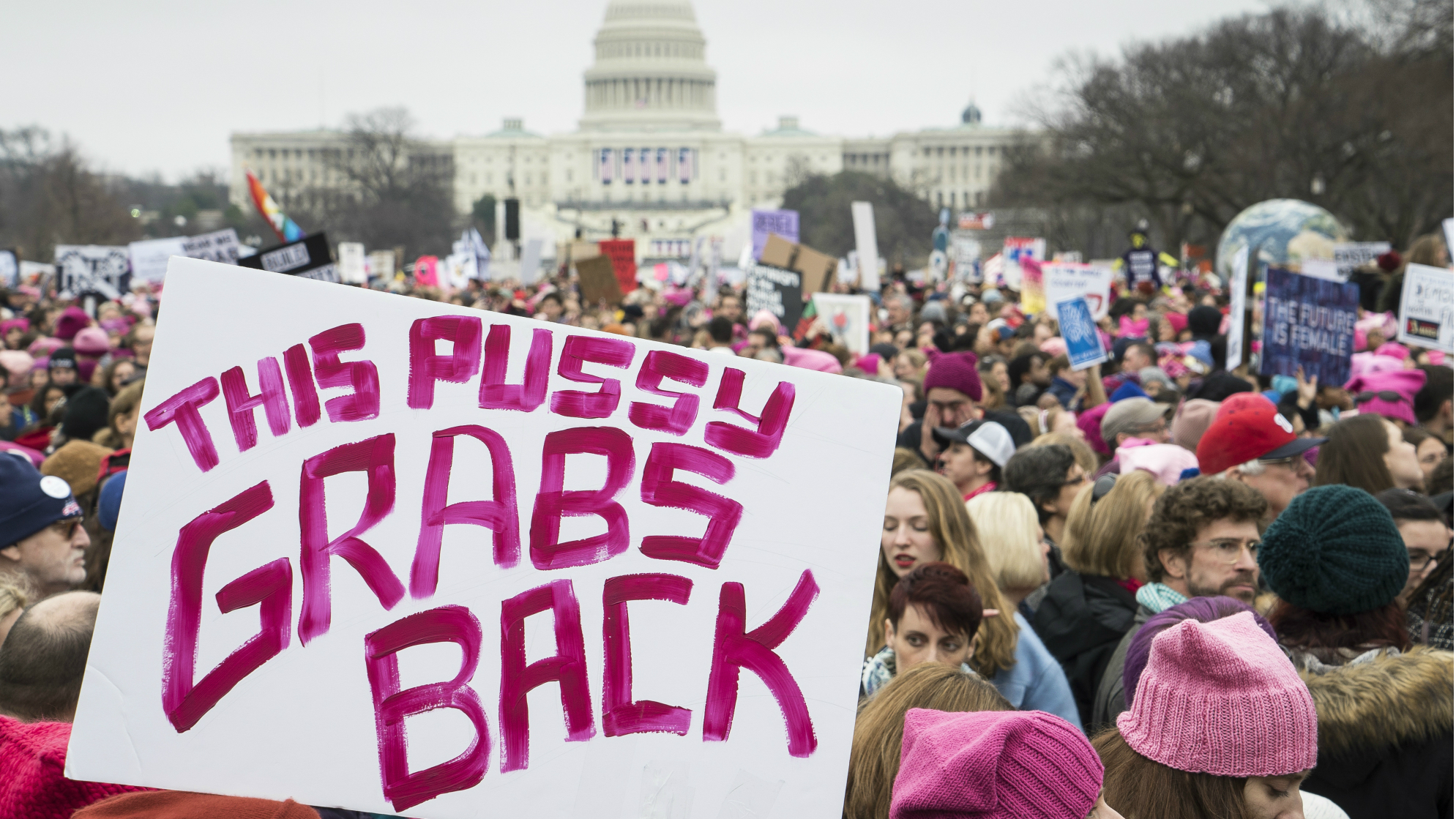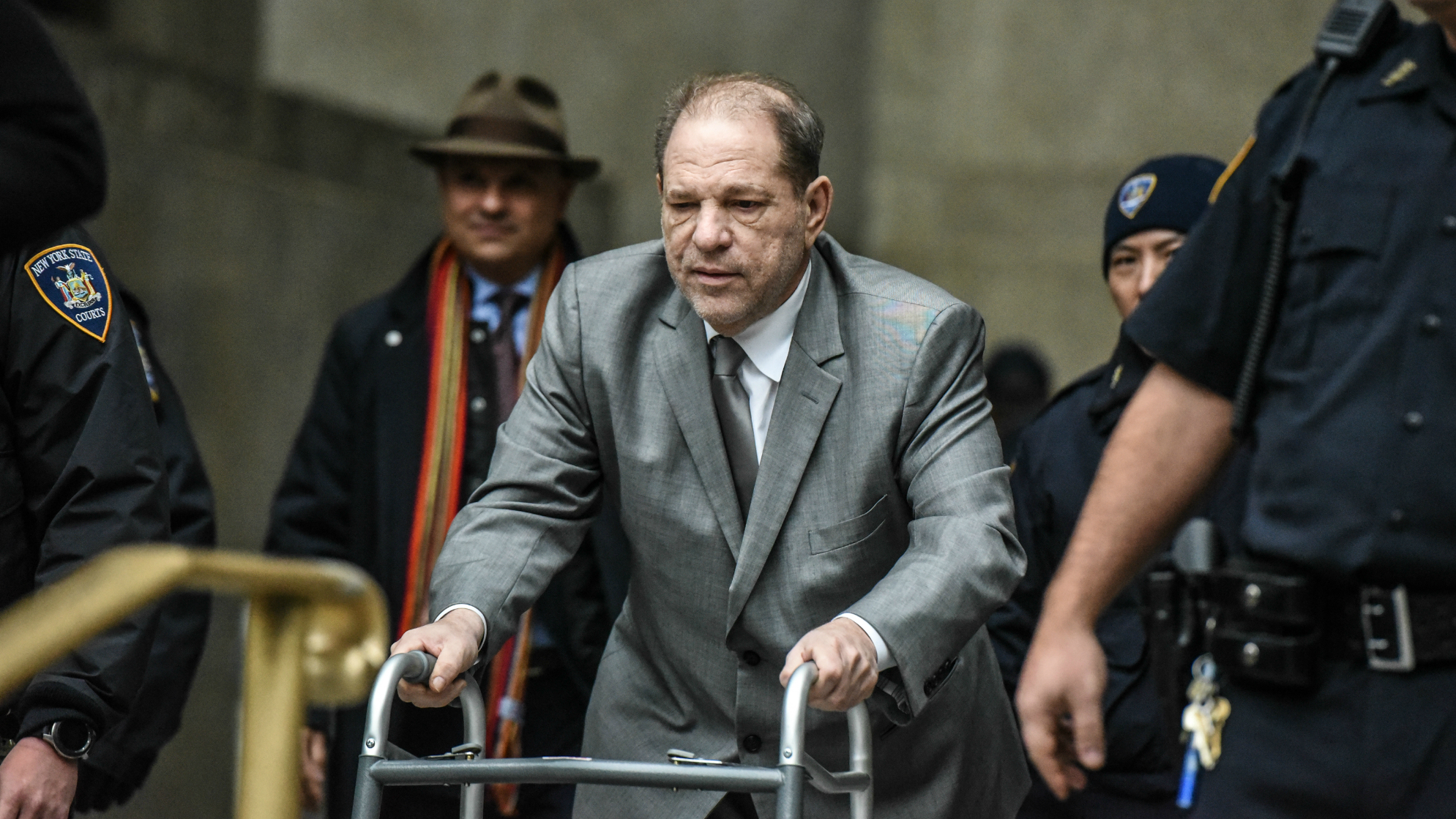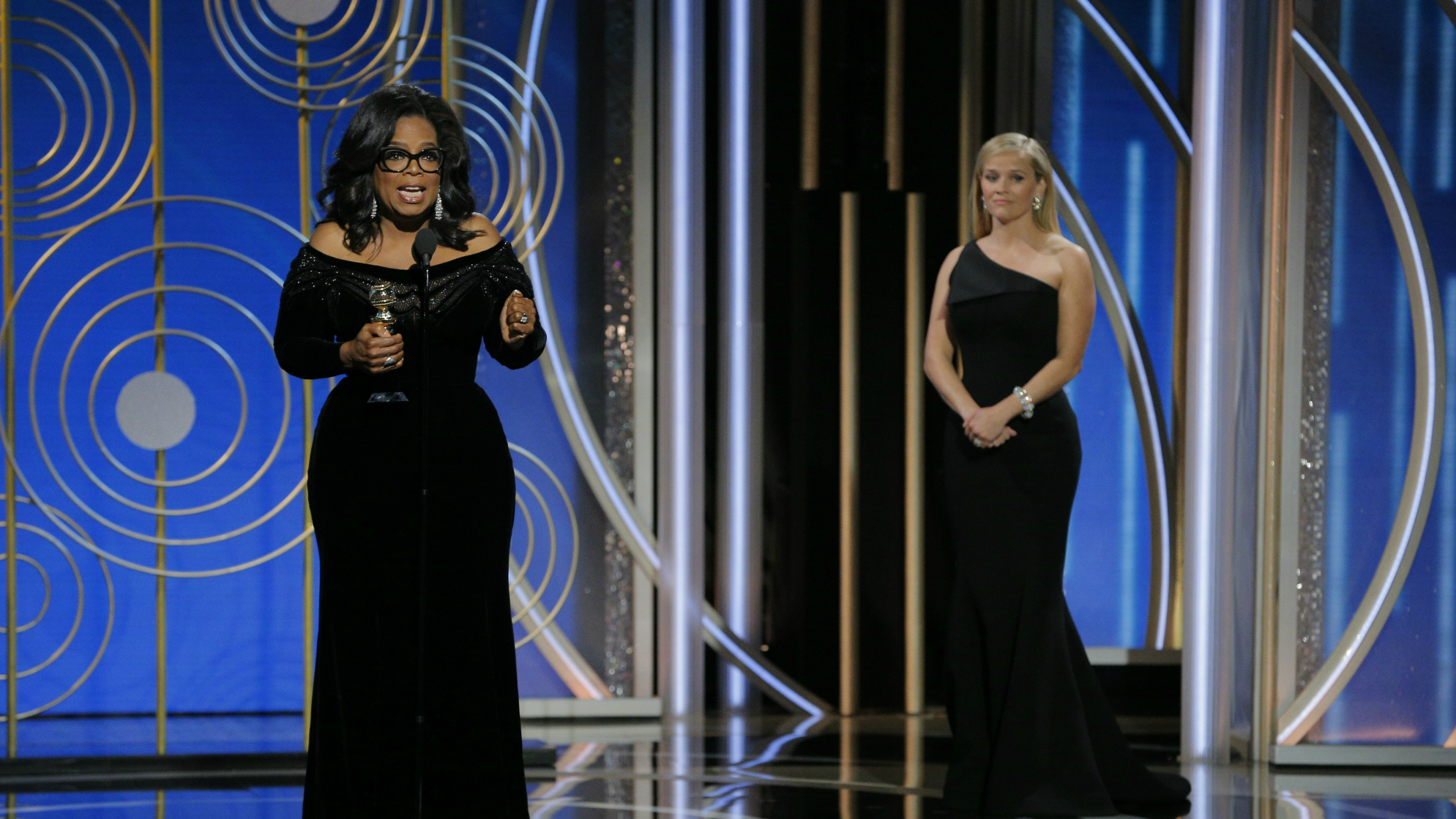We're more open about sexual violence than ever but has anything changed for the better
Over the last decade we've realised we're stronger when raising our voices together as the #metoo movement shows, but despite this there's been a staggering drop in convictions for sexual violence. Writer Lizzy Dening asks how can we help survivors in 2020?


Over the last decade we've realised we're stronger when raising our voices together as the #metoo movement shows, but despite this there's been a staggering drop in convictions for sexual violence. Writer Lizzy Dening asks how can we help survivors in 2020?
The last decade has changed how we think and speak about sexual violence. A few years ago, it would have been unimaginable that Hollywood A-listers would rise up against powerful men within their industry; let alone that 200,000 survivors of sexual violence would tweet about it in just one day; or millions would take to the streets as part of the Women’s March. But, for all that, it can be easy to feel that we’re sliding backwards, too. Rape conviction rates in the UK are at an all-time low, and arguably the most powerful man in the world is a misogynist who thinks it’s acceptable to ‘grab ‘em by the pussy’. We might be more open about sexual violence than ever – but has anything actually changed for the better since 2010?
First, a disclaimer. This is clearly a massive topic, with arms branching out into sexual abuse in war zones; institutions of power such as the church and army; not to mention the abuse perpetuated against children, men and non-binary survivors. This isn’t a definitive list of sexual violence over the past decade. In one article, it’s impossible to delve down into every murky depth. But if you identify as a woman and live in the UK, these are likely to be the stories that have directly affected you and your peers, or been given the most time in news outlets.
Operation Yewtree
The first of the decade’s high profile cases began in 2012, with the posthumous investigation of Jimmy Savile and other TV personalities. This had several positive effects: firstly we were finally able to talk about the effects of historic abuse and secondly, the ‘untouchable’ nature of celebrities seemed to crumble, and finally many people felt able to seek help, with an instant 80% spike in calls to Rape Crisis. 'The police improved after Savile, and started to realise they had to become more welcoming to victims,' says Victims Commissioner, Dame Vera Baird QC. 'Women started to feel more confident and it showed there was a bit of equality in the law after all, even for powerful men.'
Women’s March

Just when it felt like society was getting fairer, Trump happened in 2016. When a man who brags about grabbing women ‘by the pussy’ is elected into the highest office, it’s clear society is far from equal. Trump’s presidency took us all by surprise – even him – and led to millions of outraged women marching on 21st January, 2017 (his first day in office). Not only was the Washington DC Women's March believed to be the largest of its kind in US history, but it was echoed around the world by similar protests. Gotta love those pink knitted pussy hats. [Find a free pattern here!]
The #metoo movement
While the phrase is credited to activist Tarana Burke, who first used it in 2006, it gained wider traction on October 15, 2017. Actor Alyssa Milano posted on Twitter: 'If all the women who have ever been sexually harassed or assaulted wrote ‘Me too’ as a status, then we give people a sense of the magnitude of the problem.' By the end of the day there were 200,000 tweets; within a year, 19 million. At least 417 executives and employees were outed by the movement and lost their jobs within 18 months.
Weinstein is called out

After Ashley Judd publicly spoke about her sexual harassment by Harvey Weinstein in the New York Times in October 2017, numerous others came forward, including 13 women in the New Yorker. Rose McGowan became a powerful voice against the Miramax film producer, too – calling out other men in Hollywood who claimed not to know about the producer’s abuse. Weinstein was swiftly fired from his company that same month – although his rape trial has only just begun, two years later.
Celebrity news, beauty, fashion advice, and fascinating features, delivered straight to your inbox!
The Weinstein effect
After the lid came off that Pandora’s box, accusations came thick and fast, from both men and women. Kevin Spacey, Louis CK, the Affleck brothers, James Franco, Aziz Ansari, and more were all called out in the press for differing levels of sexual misconduct. While Bill Cosby was sentenced to three to 10 years in prison for sexual assault, most of the men accused weren’t taken to court (or have yet to reach a trial). Many people seemed to give up on the legal system and relied on verified journalism to deliver justice and cases arguably became more about public shaming via the media. In some ways this feels like progress – especially when conviction rates for sexual violence have always been low, but mob justice isn’t quite the same as legal justice, and it’s an unpredictable energy to release.
High profile support

The Time’s Up movement was announced in January 2018, with 300 women working in film, TV and theatre creating a legal defence fund to support sexual harassment cases. Shout out to Oprah for praising survivors for coming forward, during her acceptance speech for a Golden Globe. We’ve also had long-term supporter of women’s causes, Emma Watson, promoting survivor Fern Champion’s petition to garner increased funding for rape crisis centres. Hermione would approve.
Convictions rates are falling
It’s wild to think that documentaries Surviving R Kelly and Leaving Neverland were only released this year, when they’re already so embedded in the public consciousness. Both manage to be utterly shocking but sadly unsurprising, given what the past few years have shown us about men of privilege hiding their crimes in plain sight. Still, despite the overwhelming evidence that a vast percentage of us have been affected by sexual violence, sadly the support for survivors in many law courts and police interviews across the UK is less effective than ever. 'Things were getting better at the start of the decade, from a criminal justice perspective, and now they’re terribly worse,' says Dame Vera Baird.
What can we do?
If nothing else, the last decade has shown we are stronger when we raise our voices together. Whether it’s via Twitter or by taking to the streets, we’re better than ever at taking action to redress power imbalances. Society is – slowly – getting better at listening to survivors of sexual violence too. In my work as founder of Survivor Stories – a collection of interviews with survivors of sexual violence – I’ve learned first-hand how important it is for survivors to feel heard, and for us to listen and learn from them. I also believe the responsibility lies with us to shut down victim-blaming when we see it, including contacting publications or writing in the comments section if you disagree with how a story has been written. Rape Crisis centres are also still struggling to find enough funding, so consider donating money or time. 'Sign petitions to support change within sexual violence,' says Dame Vera, 'and put pressure on your MP to back funding for crisis centres. You can make a difference in your community to drive cultural change for the next generation.'
Maria Coole is a contributing editor on Marie Claire.
Hello Marie Claire readers – you have reached your daily destination. I really hope you’re enjoying our reads and I'm very interested to know what you shared, liked and didn’t like (gah, it happens) by emailing me at: maria.coole@freelance.ti-media.com
But if you fancy finding out who you’re venting to then let me tell you I’m the one on the team that remembers the Spice Girls the first time round. I confidently predicted they’d be a one-hit wonder in the pages of Bliss magazine where I was deputy editor through the second half of the 90s. Having soundly killed any career ambitions in music journalism I’ve managed to keep myself in glow-boosting moisturisers and theatre tickets with a centuries-spanning career in journalism.
Yes, predating t’internet, when 'I’ll fax you' was grunted down a phone with a cord attached to it; when Glastonbury was still accessible by casually going under or over a flimsy fence; when gatecrashing a Foo Fighters aftershow party was easy-peasy-lemon-squeezy and tapping Dave Grohl on the shoulder was... oh sorry I like to ramble.
Originally born and bred in that there Welsh seaside town kindly given a new lease of life by Gavin & Stacey, I started out as a junior writer for the Girl Guides and eventually earned enough Brownie points to move on and have a blast as deputy editor of Bliss, New Woman and editor of People newspaper magazine. I was on the launch team of Look in 2007 - where I stuck around as deputy editor and acting editor for almost ten years - shaping a magazine and website at the forefront of body positivity, mental wellbeing and empowering features. More recently, I’ve been Closer executive editor, assistant editor at the Financial Times’s How To Spend It (yes thanks, no probs with that life skill) and now I’m making my inner fangirl’s dream come true by working on this agenda-setting brand, the one that inspired me to become a journalist when Marie Claire launched back in 1988.
I’m a theatre addict, lover of Marvel franchises, most hard cheeses, all types of trees, half-price Itsu, cats, Dr Who, cherry tomatoes, Curly-Wurly, cats, blueberries, cats, boiled eggs, cats, maxi dresses, cats, Adidas shelltops, cats and their kittens. I’ve never knowingly operated any household white goods and once served Ripples as a main course. And finally, always remember what the late great Nora Ephron said, ‘Everything is copy.’
